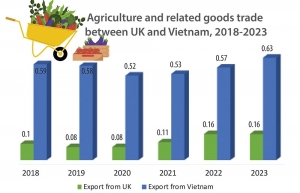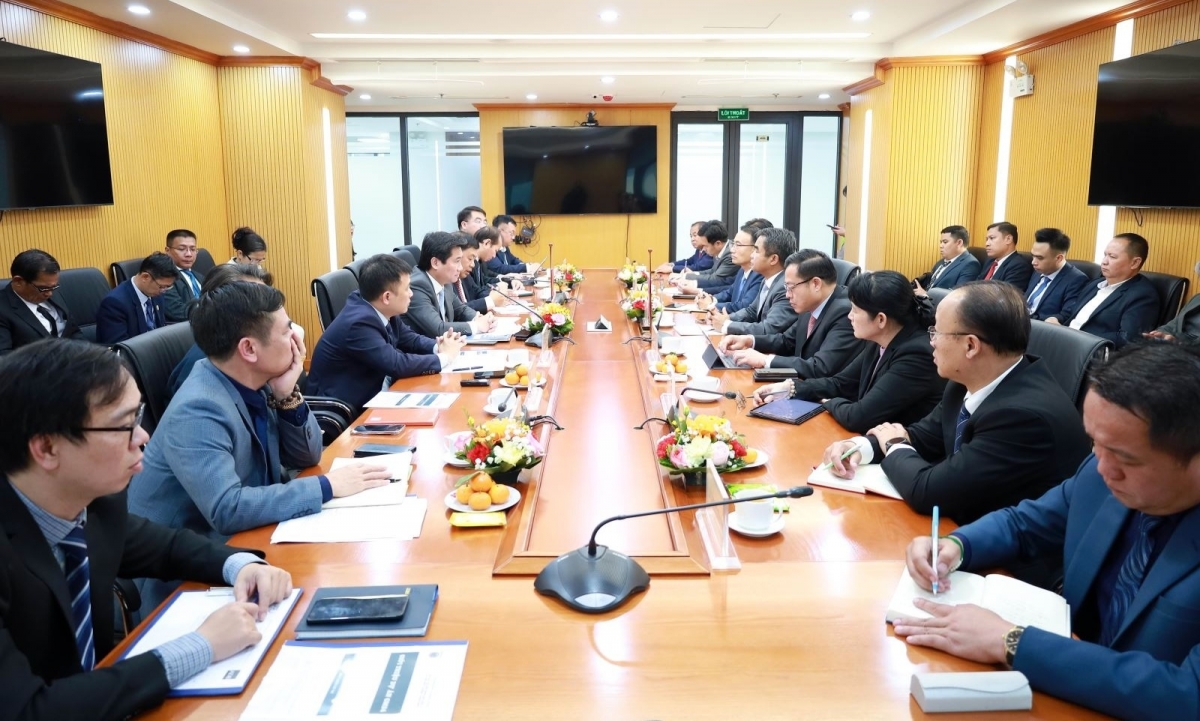INTERNATIONAL INVESTMENT
AND PORTAL
The ASEAN-UK Economic Integration Programme (EIP) was launched last month. What impact will this initiative have on Vietnam-UK trade relations?
 UK trade commissioner for Asia-Pacific Martin Kent
UK trade commissioner for Asia-Pacific Martin Kent
The £25 million ($31.47 million) EIP highlights our commitment to work together with ASEAN towards a more cohesive regional economy. The programme will harness opportunities from the digital economy with a strong focus on women’s economic empowerment and small business development. We look forward to bringing the best of UK expertise in regulatory reform, financial services, and trade policy to ASEAN for mutual prosperity. Vietnam is a key market for the UK in ASEAN with rapid economic growth and a liberal trade policy. We want to continue to work closely to boost trade and economic relations between both nations.
How has the UK-Vietnam Free Trade Agreement (UKVFTA) created a boost for bilateral trade?
The UKVFTA has emerged as a cornerstone for enhancing bilateral trade between the UK and Vietnam, ushering in a new era of economic cooperation and opportunity for both nations. This landmark agreement, which came into effect in January 2021 has already begun to yield tangible benefits, creating a significant boost for bilateral trade through various mechanisms and provisions aimed at fostering greater economic integration and collaboration.
Over the years, bilateral trade between the UK and Vietnam has witnessed significant growth, with bilateral commerce hitting all-time highs.
Vietnam has become one of the UK’s most important Southeast Asian trading partners. Bilateral trade doubled during the last 10 years, from £3 billion ($3.77 billion) in 2013 to around £6 billion ($7.55 billion) in 2023. This was in part made possible by the UKVFTA, which has laid the groundwork for an increasingly vibrant economic collaboration.
What should the two countries do to take advantage of the advantages of this agreement?
To further capitalise on this momentum, both countries are focusing on promoting trade and investment through enhanced cooperation in key sectors, leveraging digital technology for trade facilitation, fostering closer economic ties through joint initiatives and agreements, and continuously updating and improving the terms of the agreement to adapt to changing economic landscapes.
Additionally, efforts to promote awareness of the benefits of the UKVFTA among businesses and stakeholders in both countries would be crucial for maximising its potential impact.
How do you view the outlook for further strengthening bilateral ties?
The outlook for strengthening bilateral ties between the UK and Vietnam appears promising and holds significant potential for growth and collaboration.
There are several factors contributing to this positive outlook. Firstly, both nations have complementary economies, with each country possessing strengths in different sectors. Vietnam is known for its competitive manufacturing sector, particularly in textiles, electronics, and footwear, while the UK excels in services such as finance, technology, and creative industries. This complementarity allows for mutually beneficial trade exchanges, with each country able to supply goods and services that the other demands.
Secondly, there is room for further diversification of trade and investment between the UK and Vietnam. While certain sectors such as textiles, electronics, and agriculture have traditionally dominated trade, there are opportunities to expand cooperation in emerging sectors such as digital technology, renewable energy, healthcare, and education. By tapping into these new areas of collaboration, both countries can broaden the scope of their economic partnership and unlock new sources of growth.
Next, the existence of the UKVFTA provides a framework for facilitating trade between the two countries. By reducing tariffs, eliminating trade barriers, and providing a stable legal environment, these agreements incentivise bilateral trade and investment, creating opportunities for businesses to expand their market access and competitiveness.
As a member of the Comprehensive and Progressive Agreement for Trans-Pacific Partnership (CPTPP), we see Vietnam as an important partner with a rapidly growing economy in the heart of the Asia Pacific region (with growth of over 5 per cent last year and is predicted to grow roughly 6 per cent this year), we are committed to continue to grow our trade relationship joining this high standards and forward-thinking trade bloc enables us to work with Vietnam and other CPTPP members to shape the trading systems of the future.
In addition, the digital transformation and innovation agenda presents exciting opportunities for enhancing bilateral ties.
Both the UK and Vietnam are prioritising digitalisation and innovation as key drivers of economic growth and competitiveness. By sharing best practices, fostering collaboration between startups and tech companies, and leveraging digital platforms for trade and investment, both countries can accelerate their digital economies and create new avenues for partnership.
What is more, as we celebrated the 50th anniversary of the Vietnam-UK diplomatic ties last year, cultural exchanges, educational collaborations, and people-to-people connections continue playing a crucial role in strengthening bilateral ties.
Furthermore, both the UK and Vietnamese governments have implemented policies and initiatives to support bilateral trade and investment. This includes trade missions, business delegations, investment promotion activities, and diplomatic engagements aimed at fostering closer economic cooperation between both countries.
 Myriad of benefits already clear with UK-Vietnam pact
Myriad of benefits already clear with UK-Vietnam pact
Vietnam and the UK are boosting ties in agri-food and drink sectors backed by slashed tariffs under free trade agreements.



















